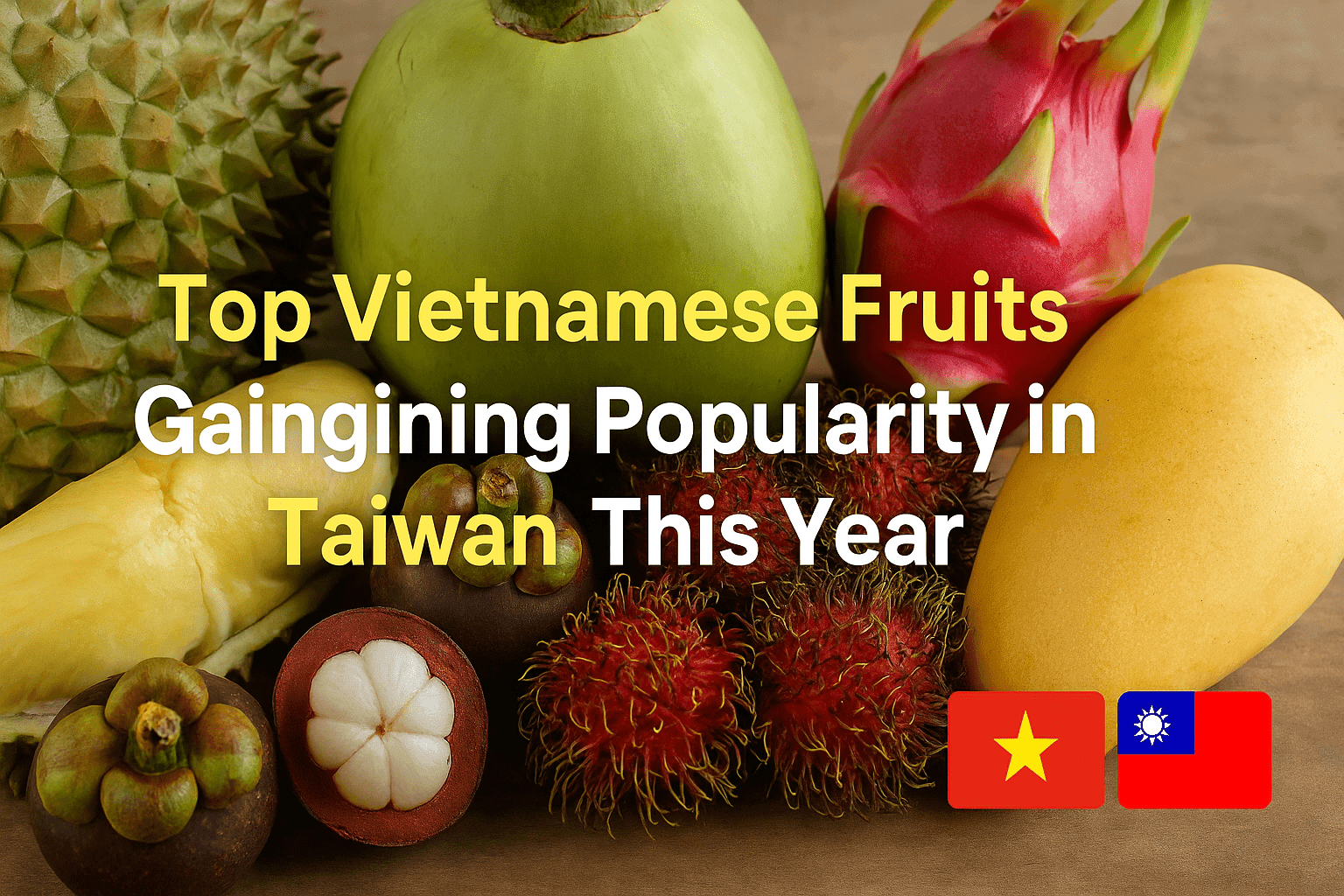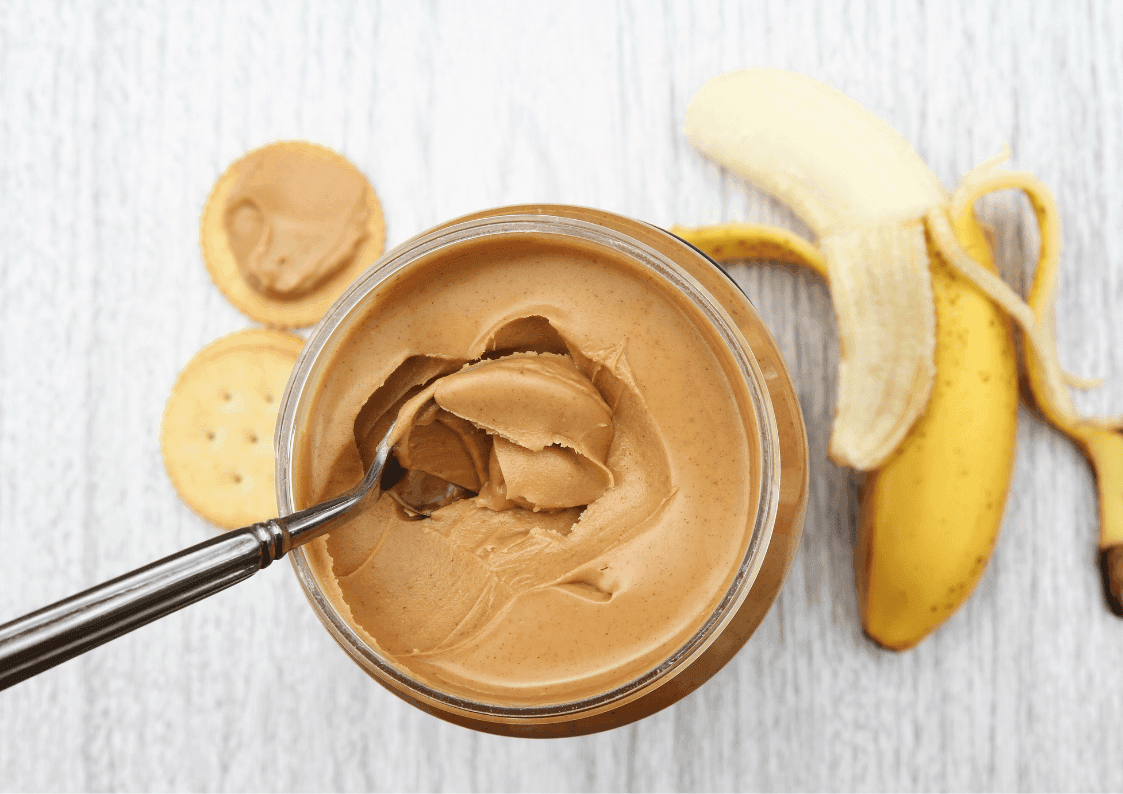
Apr 23, 2025
Top Vietnamese Fruits Gaining Popularity in Taiwan This Year
Discover why Vietnamese tropical fruits like durian, mango & coconut are taking over Taiwan’s market in this year. Taste the trend now!

Tired of the same old peanut butter sandwich? Creamy, decadent cashew butter spread might be your new best friend – or is it? Both cashew and peanut butter are popular nut butters enjoyed worldwide, each offering unique benefits and flavors.
This article will compare both, examining their nutrition, taste, versatility, and other factors to help you decide which is the better choice for your needs. Whether you're a seasoned nut butter aficionado or just starting to explore your options, we'll break down everything you need to know about these versatile spreads, including the option of making homemade cashew butter.
When comparing cashew butter nutrition and peanut butter, there are some key differences to consider. While both provide a good source of healthy fats and some protein, the specific nutrient profiles vary.

Peanut butter generally boasts a slightly higher protein content per serving. However, cashew butter often contains a bit more magnesium and zinc, crucial minerals for various bodily functions. The fat content is similar in both, but the ratio of monounsaturated fats to polyunsaturated fats may differ slightly. Let's dive a bit deeper into the cashew butter benefits and whether is cashew butter healthy for you or not.
Both nut butters are rich in heart-healthy fats, with cashew butter containing slightly more monounsaturated fats, which are known for their heart health benefits. The cashew butter protein content is around 5-6 grams per 2-tablespoon serving, while cashew butter calories typically range from 160-180 per serving, similar to peanut butter.
It's also essential to consider potential allergens. Peanut allergies are significantly more prevalent than cashew allergies. Therefore, cashew butter can sometimes serve as a cashew butter substitute for those with peanut or legume allergies (always consult with a doctor or allergist first!). However, those with tree nut allergies should be cautious with cashew butter.
Taste and texture are subjective, but there are some general characteristics that distinguish the two. Cashew butter taste is often described as having a creamy texture and mild flavor, smooth, and slightly sweet, with a more subtle nutty flavor compared to peanut butter.
Peanut butter, on the other hand, offers a more robust, earthy flavor. The texture can vary depending on the type – smooth or crunchy – adding another dimension to the experience. Roasting the nuts before grinding enhances the flavor of both cashews and peanuts, lending depth and richness to the final product. Roasted cashew butter tends to have a more intense flavor compared to raw cashew butter.
Both nut butters shine in different culinary applications, proving to be versatile in cooking. Peanut butter is a classic ingredient in sandwiches, cookies (think Peanut Butter Cookies!), and sauces. Its strong flavor pairs well with sweet and savory dishes alike. What about the applications of cashew butter in various cashew butter recipes?

Cashew butter lends itself beautifully to smoothies, dips, and even savory dishes like Cashew Butter Chicken. Try a cashew butter smoothie for a creamy, nutritious breakfast or snack. The milder, sweeter flavor of cashew butter makes it a great addition to desserts, lending a touch of richness without overpowering other ingredients. You can even make delicious cashew butter cookies for a twist on the classic peanut butter version.

For those following a plant-based diet, both nut butters can be excellent sources of protein and healthy fats. They can be used in salad dressings, as a spread on toast, or as a base for creamy sauces. Experiment with both to discover your favorite uses!
Generally, the cashew butter price tends to be slightly higher than peanut butter, reflecting the higher cost of cashews themselves. However, prices can vary depending on the brand and retailer. Both are widely available in most supermarkets and online stores, with various cashew butter brands offering different options like organic cashew butter.
Ultimately, the choice between cashew butter vs peanut butter comes down to personal preference and individual needs. If you're looking for a slightly sweeter, more delicate flavor and a boost of magnesium and zinc, cashew butter might be your winner. If you prefer a bolder, earthier taste and a higher protein content, peanut butter could be your go-to. Both offer unique nutritional benefits and culinary versatility.
For those following a keto diet or low carb diet, both nut butters can be incorporated in moderation, with cashew butter on keto diet being a popular choice due to its lower carb content.
Experiment with both and discover which one best suits your taste buds and dietary needs. There's no right or wrong answer—just delicious possibilities!
As you consider cashew butter vs peanut butter, remember that the best choice is the one that fits your tastes, budget, and health goals. You might even want to try making homemade nut butter to customize the flavor and texture to your liking!
Q: Is cashew butter healthier than peanut butter?
A: Both cashew and peanut butter offer unique health benefits. Peanut butter is slightly higher in protein, while cashew butter often contains more magnesium and zinc. The best choice depends on your individual dietary needs and priorities.
Q: How should I store cashew butter?
A: Most cashew butter should be stored in a cool, dry place. Some brands may recommend refrigeration after opening, so check the label for specific instructions.
Q: What does cashew butter go well with?
A: Cashew butter pairs well with fruits, vegetables, oatmeal, smoothies, and even savory dishes like chicken or noodles.
Q: Does cashew butter taste like peanut butter?
A: No, cashew butter has a milder, sweeter, and more delicate flavor than peanut butter. Peanut butter has a more robust, earthy taste.
Q: Can I use cashew butter as a substitute for peanut butter?
A: Yes, cashew butter can often be used as a substitute for peanut butter, especially for those with peanut allergies (always consult with a doctor or allergist first!). Be aware that the flavor will be different.
Q: How much protein is in cashew butter?
A: The protein content of cashew butter varies by brand, but generally, it contains around 5-6 grams of protein per 2-tablespoon serving.
Q: Is cashew butter good for weight loss?
A: Cashew butter for weight loss can be part of a balanced diet when consumed in moderation. Its healthy fats and protein can help with satiety, but be mindful of portion sizes due to its calorie density.
Q: Can babies eat cashew butter?
A: Cashew butter for babies can be introduced after consulting with a pediatrician, usually around 6 months of age or when the baby is ready for solid foods. Always watch for any signs of allergies.

Apr 23, 2025
Discover why Vietnamese tropical fruits like durian, mango & coconut are taking over Taiwan’s market in this year. Taste the trend now!

Apr 24, 2025
Black pepper Vietnam suppliers lead the global market. Discover the top 5 in 2025, learn how to import high-quality pepper, and source the best for your business.

Apr 23, 2025
Major coffee exporters like Brazil, Vietnam, Colombia, India, and Indonesia shape the 2025 global coffee market. Discover their unique contributions and future trends.